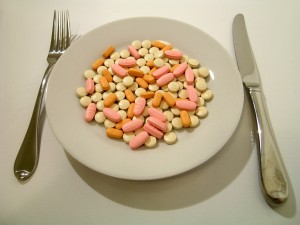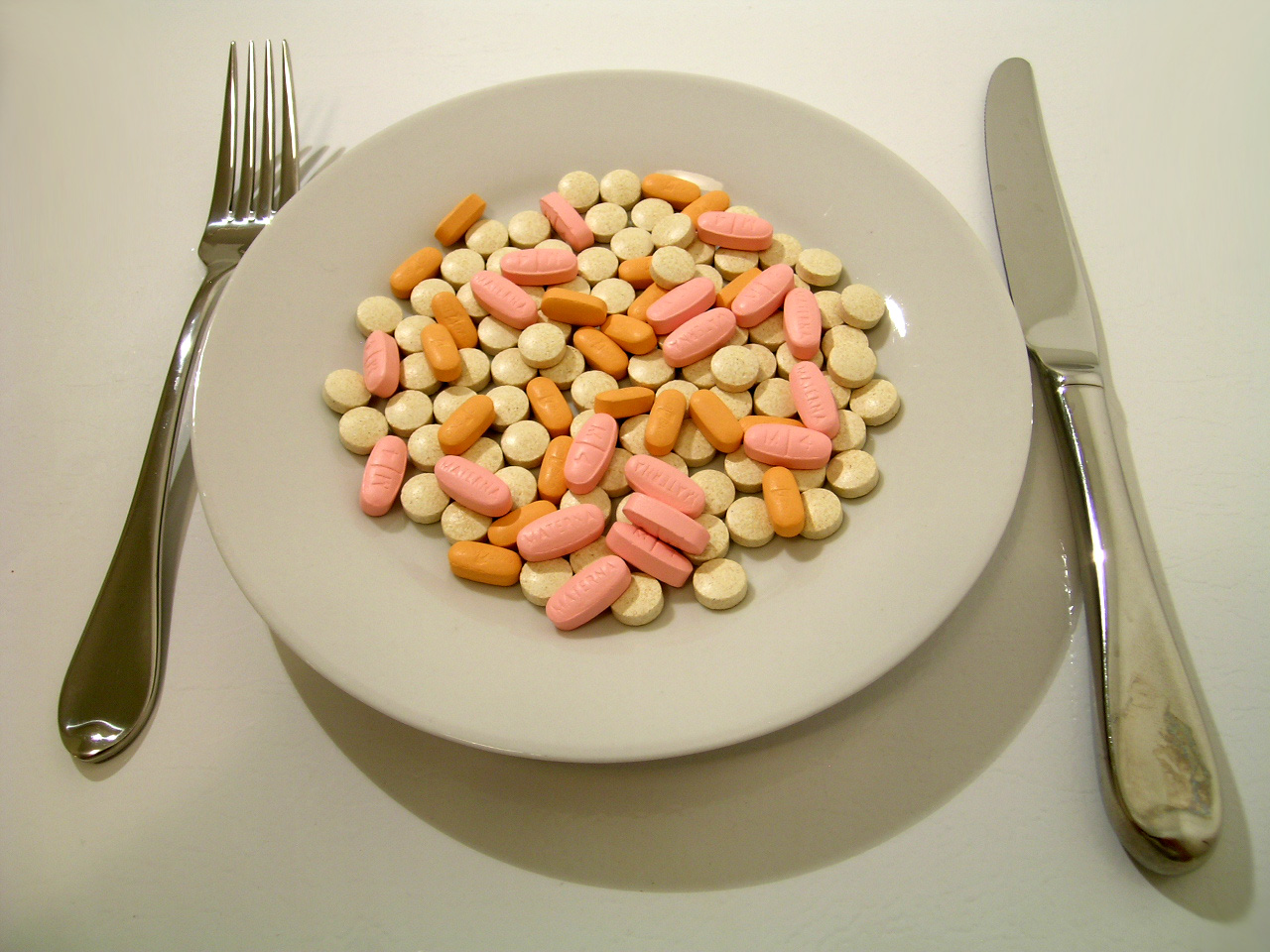 Recently, FoodMatters.tv published an article about the benefits of B complex vitamins and I emailed it around to some friends and family members. One person wrote back and said, “Gee I was just thinking about throwing out all these bottles of old vitamins because I never take them” and thanked me for the timely message. She decided not to throw out her vitamins, and I decided to write this post.
Recently, FoodMatters.tv published an article about the benefits of B complex vitamins and I emailed it around to some friends and family members. One person wrote back and said, “Gee I was just thinking about throwing out all these bottles of old vitamins because I never take them” and thanked me for the timely message. She decided not to throw out her vitamins, and I decided to write this post.
Here are some tips I’ve learned from taking vitamins on and off pretty regularly for many many years. I take about 2 dozen vitamins a day, which sounds pretty crazy I know. But at my age I can’t just take a multi and call it a day any more. I have gotten specific recommendations from my doctor, and I also take a bunch of additional supplements I heard about from other sources (which I made sure to tell him about in case of any interactions).
So here’s what I’ve learned…
1. Start Slowly
If you’re going from 1-2 (or none) to a handful, start slowly and introduce one or two additional supplements every 3-4 days to let your body get accustomed. (I made this mistake and ended up with stomach cramps and diarrhea.)
2. Morning, Noon, and Night
A general rule is vitamins in the morning, minerals at night. Break up your multi into two doses, one in the morning and one at lunch time. You will have a better chance at avoiding the afternoon slump, as the lunch vitamin will help you stay “UP” in the afternoon. You can also take your B’s at lunch time for the same reason. People are generally more energetic in the morning, so this helps balance your energy level all day.
3. Take certain vitamins together.
Some vitamins should be taken together (like calcium and magnesum, or selenium and iodoral for example) and so you should ask your doctor (or look online) to find out what you’ll be missing if you don’t take one with another. I’ve learned that if you take Calcium without Magnesium you’re throwing your money away because your body needs both in order to absorb any of it.
4. Always take high quality vitamins.
Calcium has been in the news recently as being potentially one of those vitamins that can hurt you if you take too much. The real message behind this though is that poor quality calcium can hurt you. So make sure you get your vitamins from a reliable source, and not the generic brand at your grocery store.
5. Food first, then supplements
Some vitamins are better taken only when you need them as you can get normal amounts with the fresh foods you eat. For example people who eat fresh citrus or green leafy veggies regularly get sufficient Vitamin C. However if you start to feel sluggish or are having other maladies that make you tired or icky-feeling you can take 2500 mg of Vitamin C every 3 to 4 hours until you feel better. Then you can stop taking it. By the way, Vitamin C cures dozens of ailments and you can’t overdose on it. Here’s some recommended reading about this.
On a related note, Vitamin D is much more important in the Winter than in the Summer when we get a lot more sun. I had a Vitamin D deficiency in January of 2012 and my doctor put me on 10,000 IU’s a day. Now, however, I don’t need any more than I get in my multi, because it’s summer and I spend a lot more time outside. (In case you didn’t know, the sun makes your body produce Vitamin D).
Bonus Tip! Ask your doctor for a blood panel.
At your next annual check up, ask your doctor to do a comprehensive blood panel and tell you what you’re deficient in. S/he can also tell you what supplements you need and when to take them, based on your age, health conditions, etc. Also make sure to tell your doctor what other supplements you’re taking.

